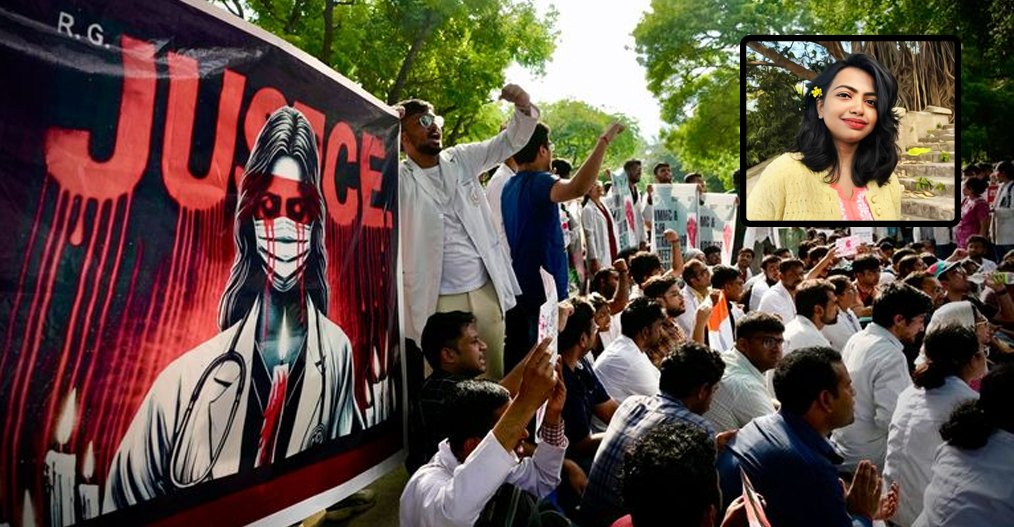The father of the trainee doctor who was stabbed to death during a rest break at a hospital in Kolkata has spoken about his daughter’s passion for medicine, as well as how her family worked to support her vocation.
“We are a poor family and we reared her with a lot of hardship. She worked very hard to become a doctor. All she did was study, study, study,” he said by telephone to the Guardian.
“All our dreams have been shattered in one night. We sent her to work and the hospital gave us her body. It’s all finished for us.
“My daughter isn’t coming back. I’m never going to hear her voice or laugh. All I can do now is concentrate on getting her justice,” he said.
It was the rape and murder of the doctor at RG Kar hospital in Kolkata on 9 August, and the subsequent handling of the case by authorities, that saw doctors across India protest and go on strike.
Her father – who cannot be named under an Indian law that protects the identity of the dead woman – told how a career in medicine was all his only child had ever wanted. The 31-year-old had beaten the odds to win one of about 107,000 places in India’s medical colleges – for which more than a million aspiring doctors compete every year.
She won a place at College of Medicine & JNM hospital in Kalyani in her home state of West Bengal. Her parents financed her dream with the precarious income her father earned as a tailor.
His voice cracked as he remembered the day she had confided in him that she wanted to pursue her dreams of becoming a doctor. “She said, ‘Papa, it’s good to become a doctor and help others; what do you think?’ I said, ‘O.K., do it; we’ll help you.’ And look what happened,” he said.
The ambition that drove him to enlarge his tailoring business made the family’s finance such that, when fretted about safety on the hour-long bus ride between the hospital and their home in a crowded Kolkata suburb, he was able to borrow the money to buy her a car.
“First, she used to tell me to wait, saying we couldn’t afford the EMIs and that she didn’t want to put an additional burden on us. Later, when she found the bus journey tiring after an entire day of work, she agreed to the car,” said the father.
Although they had stayed in the same lower middle-class suburb where she grew up, and where everyone respected her as a local girl made good, her parents had recently renovated the house. The brass nameplate bore her name, not theirs, proudly prefixed by “Dr”.
Neighbours remember that the disbelief has not dimmed since the news spread from house to house, in that suburban street, that the brilliant day of “their” doctor was done.
The location of this attack – in the very hospital where the victim worked and which she and her family took to be safe – and her public service as a doctor working a 36-hour shift have added to the public outrage over the crime.
We, like all parents, were worried about her safety only while she was traveling, said the father. The moment she reached the hospital, we relaxed. She was safe. It’s like when we used to drop her off at school – once inside the gate, you feel she is safe, he said.


